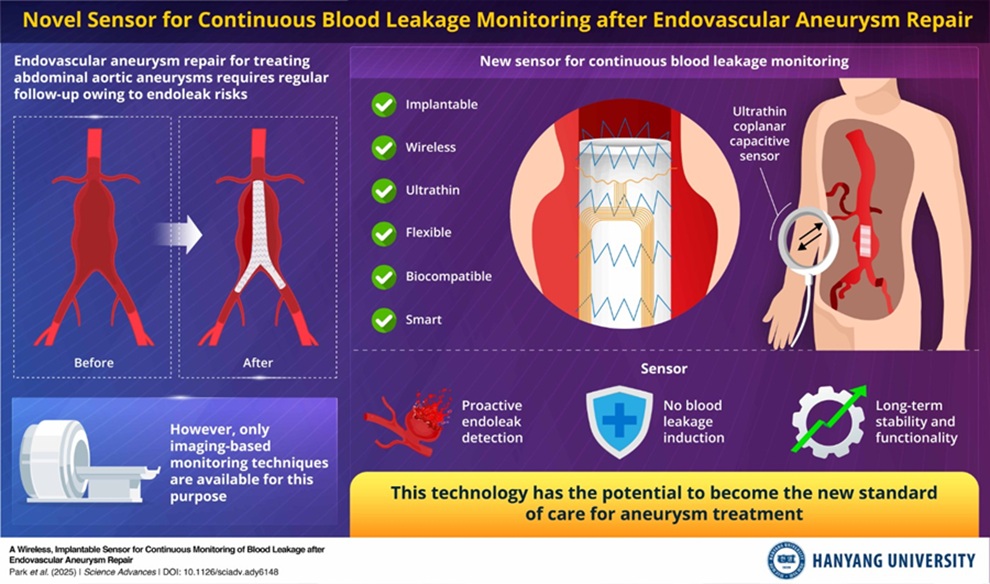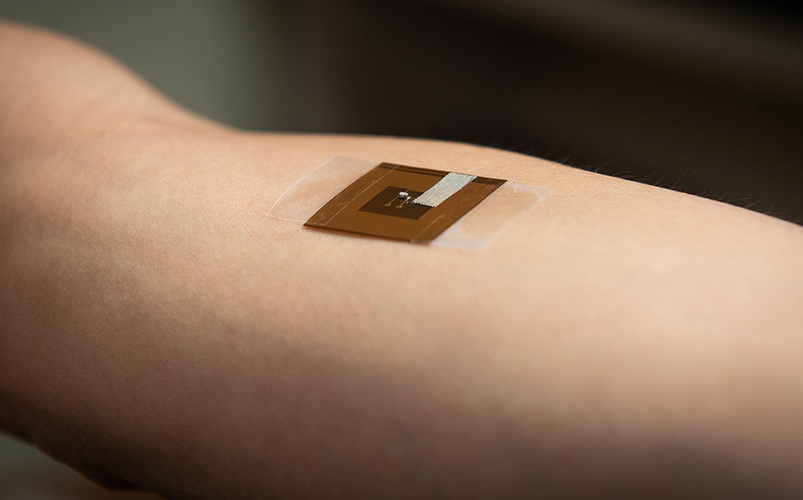New AI Software Could Reduce Patient Time at Hospitals
|
By HospiMedica International staff writers Posted on 05 Jul 2018 |
Canadian researchers have developed an innovative "virtual assistant" — an Artificial Intelligence (AI) health monitoring solution for an existing secure health monitoring platform — to help patients, their healthcare providers, and caregivers remotely manage chronic conditions such as diabetes, hypertension, and heart failure. The virtual assistant, developed by the National Research Council of Canada {Ottawa, Canada; (NRC)} and Greybox Solutions Inc. (Quebec, Canada) aims to reduce the considerable time spent in hospitals and healthcare centers by millions of Canadians affected by chronic illnesses.
Using the virtual assistant, patients can educate themselves and manage their own progress from home, while supporting healthcare professionals in triage procedures. The virtual assistant can guide patients through tasks to collect medical data such as health parameters and lifestyle habits, and provide adaptive information based on the patient's emotional and physical state.
In addition to helping patients maintain a healthier lifestyle, the virtual assistant provides data and personalized recommendations to healthcare professionals, leading to more quality time with doctors during visits instead of time spent filling in forms. In the case of patients with diseases that require specific and rigorous monitoring, such as diabetes and heart conditions, the virtual assistant is programmed to ask personalized questions targeted to the patient's condition. Data from these interactions is gathered, analyzed, organized, and displayed to healthcare professionals in a user-friendly manner, providing them with pertinent patient information on a regular basis.
Greybox, and its clinical partners located across Canada, plan to launch the diabetes, hypertension, and heart failure virtual assistant programs in several hospitals for commercial deployment late in 2018.
“We are proud to participate in this collaboration to provide an accessible digital health monitoring tool for improving the health of Canadians, especially those in remote regions or with reduced mobility,” said Dr. Roman Szumski, Vice-President of Life Sciences at the National Research Council of Canada. “The National Research Council's dedicated and recognized medical devices experts are creating virtual assistant applications that empower patients while creating regular and essential data transfer to their health professionals for more efficient health monitoring.”
“We are pleased to be able to count on the National Research Council's expertise to expand our offer to other healthcare areas,” said Pierre Bérubé, Founder and CEO, Greybox Solutions Inc.
“Their expertise in the artificial intelligence field and biomedical software engineering, as well as their access to clinicians to guide the development of a product, is a distinct advantage when it comes to developing a product that meets a specific need.”
Related Links:
National Research Council of Canada
Greybox Solutions
Using the virtual assistant, patients can educate themselves and manage their own progress from home, while supporting healthcare professionals in triage procedures. The virtual assistant can guide patients through tasks to collect medical data such as health parameters and lifestyle habits, and provide adaptive information based on the patient's emotional and physical state.
In addition to helping patients maintain a healthier lifestyle, the virtual assistant provides data and personalized recommendations to healthcare professionals, leading to more quality time with doctors during visits instead of time spent filling in forms. In the case of patients with diseases that require specific and rigorous monitoring, such as diabetes and heart conditions, the virtual assistant is programmed to ask personalized questions targeted to the patient's condition. Data from these interactions is gathered, analyzed, organized, and displayed to healthcare professionals in a user-friendly manner, providing them with pertinent patient information on a regular basis.
Greybox, and its clinical partners located across Canada, plan to launch the diabetes, hypertension, and heart failure virtual assistant programs in several hospitals for commercial deployment late in 2018.
“We are proud to participate in this collaboration to provide an accessible digital health monitoring tool for improving the health of Canadians, especially those in remote regions or with reduced mobility,” said Dr. Roman Szumski, Vice-President of Life Sciences at the National Research Council of Canada. “The National Research Council's dedicated and recognized medical devices experts are creating virtual assistant applications that empower patients while creating regular and essential data transfer to their health professionals for more efficient health monitoring.”
“We are pleased to be able to count on the National Research Council's expertise to expand our offer to other healthcare areas,” said Pierre Bérubé, Founder and CEO, Greybox Solutions Inc.
“Their expertise in the artificial intelligence field and biomedical software engineering, as well as their access to clinicians to guide the development of a product, is a distinct advantage when it comes to developing a product that meets a specific need.”
Related Links:
National Research Council of Canada
Greybox Solutions
Latest Business News
- Philips and Masimo Partner to Advance Patient Monitoring Measurement Technologies
- B. Braun Acquires Digital Microsurgery Company True Digital Surgery
- CMEF 2025 to Promote Holistic and High-Quality Development of Medical and Health Industry
- Bayer and Broad Institute Extend Research Collaboration to Develop New Cardiovascular Therapies
- Medtronic Partners with Corsano to Expand Acute Care & Monitoring Portfolio in Europe
- Expanded Collaboration to Transform OR Technology Through AI and Automation
- Becton Dickinson to Spin Out Biosciences and Diagnostic Solutions Business
- Boston Scientific Acquires Medical Device Company SoniVie
- 2026 World Hospital Congress to be Held in Seoul
- Teleflex to Acquire BIOTRONIK’s Vascular Intervention Business
- Philips and Mass General Brigham Collaborate on Improving Patient Care with Live AI-Powered Insights
- Arab Health 2025 Celebrates Landmark 50th Edition
- Boston Scientific Acquires Medical Device Company Intera Oncology
- MEDICA 2024 to Highlight Hot Topics of MedTech Industry
- Start-Ups To Once Again Play Starring Role at MEDICA 2024
- Boston Scientific to Acquire AFib Ablation Company Cortex
Channels
Critical Care
view channel
CPR Guidelines Updated for Pediatric and Neonatal Emergency Care and Resuscitation
Cardiac arrest in infants and children remains a leading cause of pediatric emergencies, with more than 7,000 out-of-hospital and 20,000 in-hospital cardiac arrests occurring annually in the United States.... Read more
Ingestible Capsule Monitors Intestinal Inflammation
Acute mesenteric ischemia—a life-threatening condition caused by blocked blood flow to the intestines—remains difficult to diagnose early because its symptoms often mimic common digestive problems.... Read more
Wireless Implantable Sensor Enables Continuous Endoleak Monitoring
Endovascular aneurysm repair (EVAR) is a life-saving, minimally invasive treatment for abdominal aortic aneurysms—balloon-like bulges in the aorta that can rupture with fatal consequences.... Read more
Wearable Patch for Early Skin Cancer Detection to Reduce Unnecessary Biopsies
Skin cancer remains one of the most dangerous and common cancers worldwide, with early detection crucial for improving survival rates. Traditional diagnostic methods—visual inspections, imaging, and biopsies—can... Read moreSurgical Techniques
view channel
Robotic Assistant Delivers Ultra-Precision Injections with Rapid Setup Times
Age-related macular degeneration (AMD) is a leading cause of blindness worldwide, affecting nearly 200 million people, a figure expected to rise to 280 million by 2040. Current treatment involves doctors... Read more
Minimally Invasive Endoscopic Surgery Improves Severe Stroke Outcomes
Intracerebral hemorrhage, a type of stroke caused by bleeding deep within the brain, remains one of the most challenging neurological emergencies to treat. Accounting for about 15% of all strokes, it carries... Read morePatient Care
view channel
Revolutionary Automatic IV-Line Flushing Device to Enhance Infusion Care
More than 80% of in-hospital patients receive intravenous (IV) therapy. Every dose of IV medicine delivered in a small volume (<250 mL) infusion bag should be followed by subsequent flushing to ensure... Read more
VR Training Tool Combats Contamination of Portable Medical Equipment
Healthcare-associated infections (HAIs) impact one in every 31 patients, cause nearly 100,000 deaths each year, and cost USD 28.4 billion in direct medical expenses. Notably, up to 75% of these infections... Read more
Portable Biosensor Platform to Reduce Hospital-Acquired Infections
Approximately 4 million patients in the European Union acquire healthcare-associated infections (HAIs) or nosocomial infections each year, with around 37,000 deaths directly resulting from these infections,... Read moreFirst-Of-Its-Kind Portable Germicidal Light Technology Disinfects High-Touch Clinical Surfaces in Seconds
Reducing healthcare-acquired infections (HAIs) remains a pressing issue within global healthcare systems. In the United States alone, 1.7 million patients contract HAIs annually, leading to approximately... Read moreHealth IT
view channel













